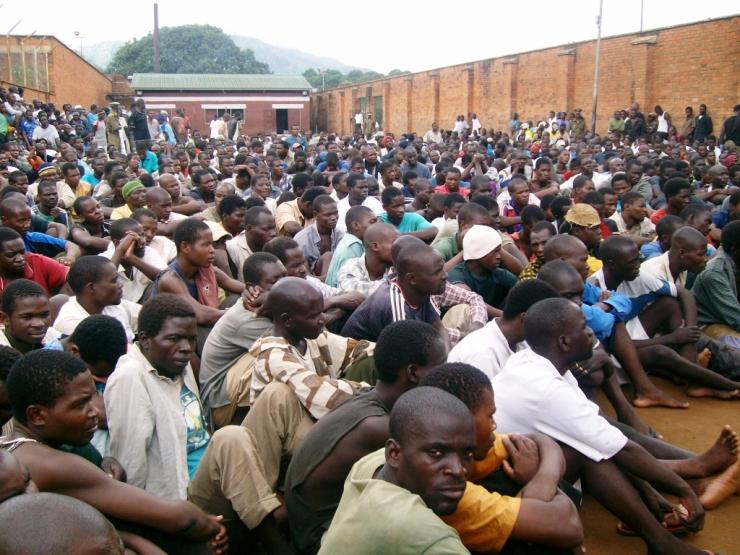The Malawi Inspectorate of Prisons (MIP) has urged government to decongest the country’s prisons by providing makeshift cells while awaiting construction of a prison in each district.
According to a report on the inspection of prisons and police cells conducted by MIP in March 2018, whose results were disseminated on Friday in Lilongwe, the current status of prisoners population is bad whereas the structures are dilapidated; hence, pose a danger to the inmates.
Delivering the report to various stakeholders, including Members of Parliament (MPs), the Attorney General, Malawi Police and Prison services, chairperson for Malawi Inspectorate of Prisons Justice Kennan Manda said the country’s prisons are not fit for human occupancy.

Currently, the prisons are said to be holding 14 778 inmates, against an occupancy of 5 000, a situation the inspectorate has described as demeaning to prisoners, as human beings who suffer violation of the right against prohibition of torture, cruelty and inhuman treatment.
“The population is more than 14 000 right now, this is a rise from 2016’s 8 000 in the 30 prisons the country has. Besides, the prisons are old and there is no room for privacy, except for Mzimba Prison.
“The general observation is that most of the prison structures were built during colonial time, they are very old and dilapidated, not fit for humans, I could wish to say they need to be demolished, but because we don’t have facilities, there is need to decongest them,” said Manda.
According to the report, most prison cells have no windowpanes, nor built-in toilets and bathrooms. Those which appeared modern were mostly built between the 1950s and 1970s, save for Domasi, Chikwawa and Mzimba prisons, 1980 and 2006.which were constructed between
The report indicates that prisons with highest occupancy rates are Lilongwe (Maula), at 630 percent of its capacity; Ntchisi at 467 percent; Nkhotakota at 456 percent; Ntcheu at 404 percent and Kachere at 376 percent.
The report further reveals recurrent general problems, including poor sanitation, poor diet, overcrowding, abuse of prisoners, poor ventilation, low staffing, abuse of pre-trial custody time limit and inadequate uniforms and rehabilitation.
Attorney General Kalekani Kaphale, who was among the stakeholders, expressed dismay at the revelations, saying the prisons needed to be given attention; hence, promising to follow up the issue with Ministry of Justice and Constitutional Affairs, on some factors that lead to congestion, so that they can speed up some cases to decongest the prisons.
“This report is really sad. I don’t think a sane person can clap hands over the report, we need to reflect well on the findings, it’s really bad and pathetic,” he said.
Chairperson of Parliamentary Legal Affairs Committee Kezzie Msukwa described the report as a wake-up call and promised to ensure that it receives the attention it deserves in Parliament.
“It’s a moving report. We really need to do something about it. You do not expect prisons to be the same as it was during colonial times, it is a pathetic situation,” he said.
Malawi Human Rights Commission once underscored the need for government to decongest prisons by releasing inmates who have been on remand for too long, and to consider introducing community service for petty cases



